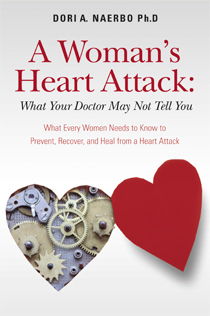In 1974, Friedman and Rosenman published the best seller Type-A Behavior and Your Heart, which was recommended by many cardiologists at that time. As a teenager, I remember my father reading it, and his self-assessment was that he was a Type A. This book motivated many studies and quickly Type A was part of our everyday language. In 1989, Rosch took this idea a step further and proposed that Type A is self-perpetuating behavior because the stress of this behavior induces adrenaline, which correspondingly keeps the person working harder and harder. This idea makes sense to me. For example, when I was an EMT in my younger years, we used to joke about how we were all “adrenaline junkies” that got high from excitement waiting on the rigs for the next call.
There is a motto that a man works from sun up to sunset, but a women’s work is never done. Today’s contemporary women have it all: career, marriage, family, and stress, stress, stress! Until recently, most studies related to stress and heart attacks have been focused primarily on men. Dr. Michelle Albert, a cardiologist at Brigham and Women’s Hospital, is the senior author of a groundbreaking research about women and stress. She said, “women make up half of the workforce in this country,” so the impact of job stress on their health is “an important issue for employers as well as employees” (Slopen et al., 2011).
Her landmark study followed 17,000 healthy women, a median age of fifty-seven, for ten years. The study found that women working under strain in high-pressure jobs have an overall 40% higher risk of heart problems, including heart attacks, strokes, or clogged arteries needing bypass surgery or an artery-opening angioplasty procedure. These figures strongly suggest that women need to reduce their stress at work and find relaxation whenever they can. The risks are unacceptably high, and life is too short to ignore the effects of stress—regardless of the job and even of one’s desire to work.
Stress is serious. We need doctors to understand that helping women is not just about the physiology of the heart but the whole package—that a woman simply is different from a man. Women with heart issues are complex. We literally hold our emotions in our hearts. We can die of a broken heart. We can have our hearts wounded by an emotional trauma, which may take years to recover. Not only does our blood flow through our hearts, but so do our emotions and connections to the world. We need more research into how stress and emotions affect women’s heart disease.
Copyright © 2012 DoriNaerbo.com. All rights reserved







Speak Your Mind